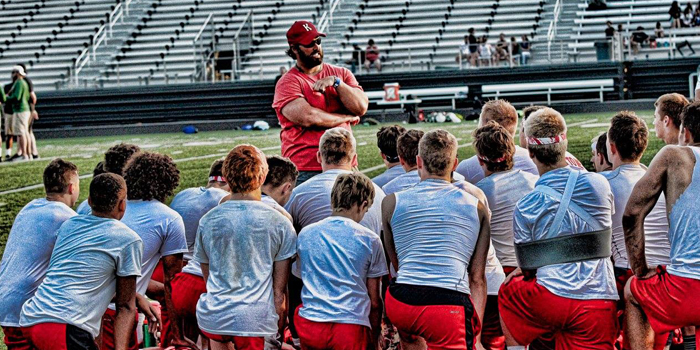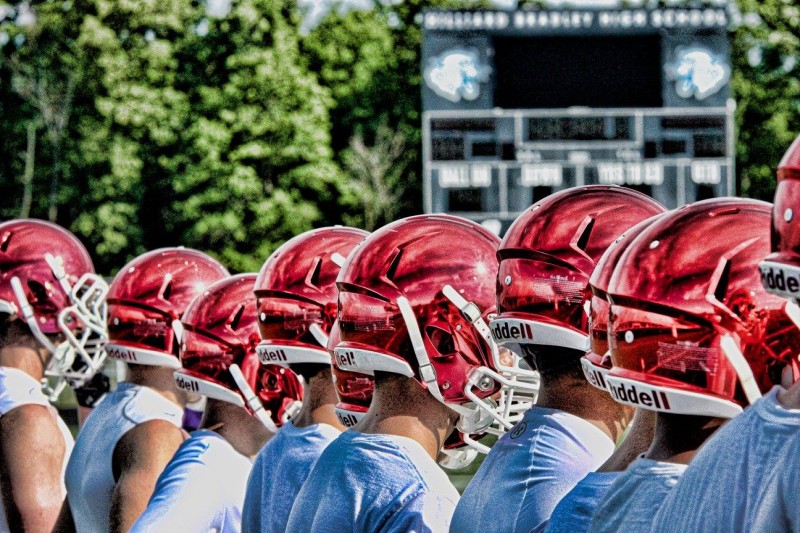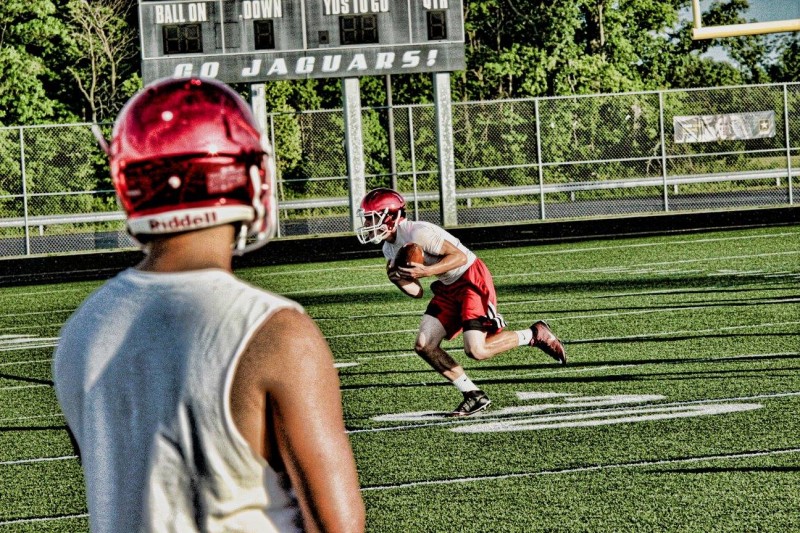
I realize that I am not as young as I used to be. My body's ability to recover from training, my brain, or perhaps the grey hair starting to appear — these are all consistent reminders that things are not what they used to be. There is no way to keep it from happening, but how we deal with things can and always will be subject to change.
What I struggle to deal with, and I know I am not the only one who is fighting this battle now, is where the wheels fell off the wagon and things like rules and expectations became merely a suggestion rather than the standard people are expected to meet.
Posted no left turn sign? Only applies to other people. No parking in a fire lane? Strictly optional. Or just park on the sidewalk instead. Talk back and/or be disrespectful to teachers/coaches/superiors? You're simply expressing yourself. Insult those who hold different views? It's cool because you're passionate. Say or do something entirely inappropriate or even regretful? As long as you say sorry or that you didn't mean to, it never happened.
RELATED: Are You Playing the Blame Game in Education and Athletics?
This broad concept of rules and expectations being mere suggestions has spread into education and especially athletics like a California wildfire. In all fairness, should we expect any different? If the example young people are following is so monumentally poor, then we cannot expect the vast majority of them to do great things or achieve the high level of expectations we are setting for them.
In a talk that longtime collegiate baseball coach John Scolinos (coached from 1948-1991, 1198 career wins) gave at the 1996 American Baseball Coaches Association Clinic, he probably explained this concept better than I ever could, in addition to perhaps seeing where things were headed:
“…if we fail to hold ourselves to a higher standard, a standard of what we know to be right; if we fail to hold our spouses and our children to the same standards; if we are unwilling or unable to provide a consequence when they do not meet the standard; and if our schools and churches and our government fail to hold themselves accountable to those they serve, there is but one thing to look forward to …”
With that, he held home plate in front of his chest, turned it around, and revealed its dark black backside.
“… dark days ahead.”
Think about it: rather than allowing teachers to work with students to find pathways to meet higher expectations, we simply alter the expectations. Instead of athletes showing up early and being accountable from start to finish, we let certain things go and count them being there as a victory. Scolinos gave a tremendous illustration of this idea. He noted that home plate is 17 inches wide from little league up through the major leagues. If a pitcher is unable to throw strikes, we do not change the plate. The pitcher either meets the standard or their opportunities diminish.
Unfortunately, in so many of our scholastic level endeavors, we attempt to widen the plate rather than enforcing a higher level of expectations and trying to show people how to get there. We let things go that previously would have been addressed or received some sort of consequence. I'm sure you have often heard someone say something along the lines of, "If I did that when I was younger, my parents/coach would have made sure I wasn't here to talk about it now."
Without question, this is an issue that we must address in order to see positive movement in the classroom, in athletics, and eventually in society. I will not even go into politics as that whole situation is a train wreck and should be discussed in forums other than this one. Imagine what could be, and the positive effects it would have on society as a whole, if teachers and coaches could hold our younger generations to higher standards and have that supported by the parents, administrators, and the community.
Let’s explore some ideas:
1. Set high expectations and do not waver from them.
As Coach Scolinos so aptly pointed out 20 years ago, we will have issues if we continue to widen the plate when kids are not able to throw strikes. Some students need additional help, and that is perfectly acceptable, but we would be better served by allowing them to achieve by way of alternate pathways or perhaps reducing the workload and letting them work up to and demonstrate the same mastery as their peers. This would help them gain both the focus and confidence they need in the future in addition to being able to handle larger tasks.
When we transition to athletics, the overall idea remains the same: set high expectations and help athletes find ways to get there. Being on time, behavioral expectations, squatting parallel — fight to meet the expectations set before you. If you cannot meet those expectations we need to figure out why and what needs to be done in order to get you there. If we continue to have issues we will address them, up to and including consequence for actions that do not reflect your best effort to achieve the mark.
2. Open up the lines of communication.
In the classroom or on the field, the mission will not be achieved unless the stakeholders have the willingness and ability to communicate throughout the process. There are far too many communicative tools available, not to mention good old face-to-face communication, for people not to be aware of what is happening and asking questions as needed. Twitter and Remind.com have been two fabulous ways for me to communicate with students, athletes, and parents. It is a good idea to have some parameters in place so people are not reacting in the heat of the moment to issues and concerns when observing a cooling off period is called for. In the long run, open lines of communication lead to ideas, dialogue, and even solutions. Who wouldn’t want that?
3. Get away from the ‘everyone gets a trophy’ mentality.
I was ecstatic when I saw that James Harrison of the Steelers forced his sons to give back participation trophies they were given. He wanted his boys to earn rewards, rather than getting them because they showed up. This concept easily applies to the classroom. I usually participate in class, and I turned in my homework, why is my grade so low? We need students who have a true desire to master their skills, just like we need athletes who have a desire to master their craft. It would be amazing to work with young people who had a true desire for excellence, who embraced mastering the steps of the process as a way to achieve on a very high level. If they do not hit the mark, they figure out the errors, make corrections, and attempt it again, repeating the process until that desired high level is achieved. It will require a ton of support, in addition to convincing some people that the end results justify the means.
4. Encourage partnerships
If we allow the status quo to continue, too many parents will operate in some means of an adversarial relationship with teacher and coaches. We have to get people together, develop a mutual understanding of the issues and tasks at hand, and work together to develop solutions. What we put in play does not matter — classroom assignments or behavior, practice habits and expectations of playing time, off-season or out of class expectations. If parents and teachers/coaches are on the same page, with administrators helping facilitate the process, the possibilities for positive progress are limitless.
5. Increase mutual respect
There should be no question in anyone’s mind that we have gotten away from previously held ideals of mutual respect. A cartoon that keeps popping up on my various social media timelines is a perfect example of how things have changed. Part one shows parents vehemently questioning their child when his grades were not acceptable. Part two shows the parents vehemently questioning the teacher when the grades were not acceptable. It is to the point now where it is never the fault of the student; the burden of failure is on the teacher regardless of what else might be taking place.
MORE: Keep Yourself at Seventeen Inches
The exact same transition has taken place in athletics. If a player is not getting the playing time they think they deserve or if the strength program is not producing the desired results, the coach or the program is to blame. We MUST find a way to get everyone back to a point where there is a level of respect between the teachers/parents/students as well as coaches/parents/players. The first four things on this list would help get us there. However, anything we can do in order to increase the mutual respect between the involved parties is a step in the right direction.
Where do we go from here? Well, that is a very good question, and one I do not have the answer to...yet. It is something I am determined to contribute to and be a part of the solution. We cannot continue to accept the status quo. We need to find ways to have beneficial dialogue, leading to outstanding results. For me, anyway, it is time to stop standing on the sidelines and just hoping people will realize a change needs to be made. Be the change we want to see, right? The rules have to mean something again. High expectations need to be the norm and not just what we hope to see. It would make everything better, from the example we are able to set to the end results we will see. Game on!
Kevin Loadman is a two time graduate of The Ohio State University, holding bachelors degrees in Communications and English Education. He was a member of the football team for 4 years, earning a letter his senior year in addition to training under strength & conditioning coach Dave Kennedy. He has been teaching English at the High School level for the past six years in addition to earning his M.E.d. from Ashland University. Kevin also spent 12 seasons coaching football at the High School level including significant time spent helping with the off-season training programs. He enjoys training and competing in Gene Rychlak's Revolution Powerlifting Syndicate, holding state as well as federation records in the amateur division he currently participates in.
Photos courtesy of Chris Whitacre












We need to help direct those we can to adopt the Conjugate System of Quality. We can maintain our individuality within the context of making the world a better place.